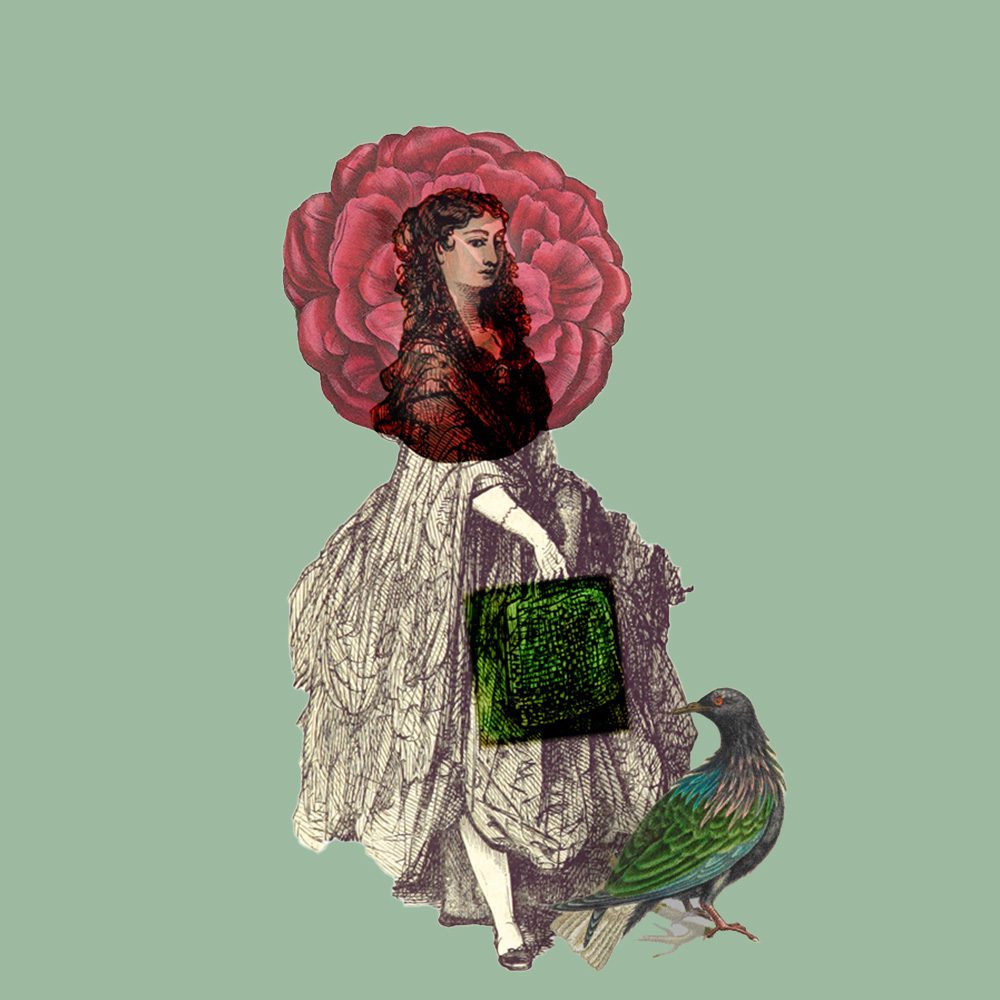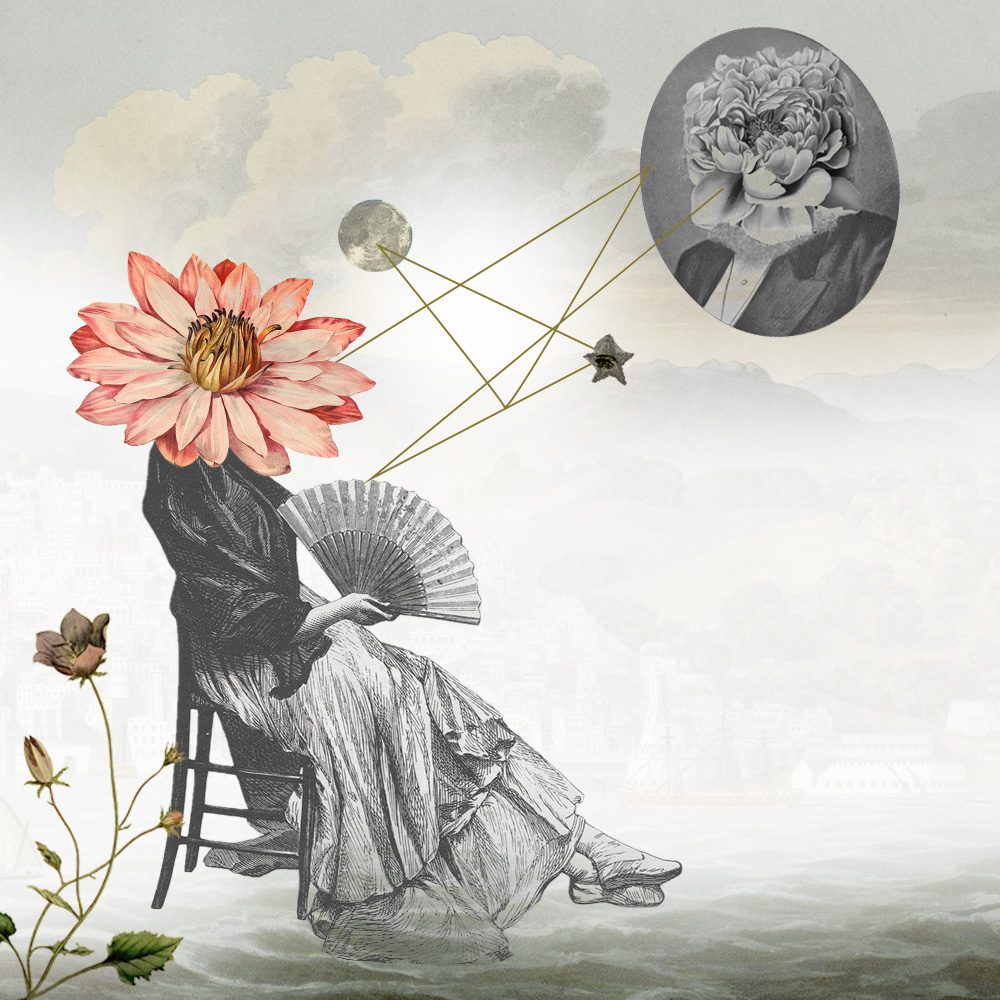(with added ghosts, kites, composting and piñatas)
Recently, I’ve been asked by quite a few people why I am a collage artist. Not just in the aesthetics or the idea of collage as a small act of resistance, but in the personal scale of it. In the personal ‘why’ of it. So here goes.
If you were, like me, born in the early 1970s, I wonder if you remember the range of gurus and experts who kindly told us how to think (and how to avoid being crushed by farm machinery in what is possibly the most disturbing film ever)?
I trusted – not just the confident paternal voice of these broadcasts but also – if not party politics – political structures (even if I didn’t live in London). My parents were staunch ‘middle of the road’ in their beliefs, and they didn’t seem unreasonable, so I listened to them. This meant that, by and large, I was comfortable and unquestioning. I stood for the SDP-Liberal alliance in the school mock election. Without really understanding what that meant. Or even what their policies were. I came second.
Fast forward several years later to one failed marriage and two small children to raise on a very tight budget, and I’d still retained my faith that somehow fervent composting of all food waste and ability to live on a tiny income meant I gained a kind of internal security or righteousness – embodied at least in a dull but healthy diet. I think that bubble might have faded when my youngest child exclaimed that the local Morrisons was ‘the biggest shop in the world’ and I felt obliged to take them out a bit. Day trips cost more money than freelance artists can afford. So I got a day job.
But the crunch came for me long after the day job and well into the work with a bit of responsibility. I threw myself zealously into work, believing it was helpful and socially valuable. I’d still retained a sense of faith in structures. That the hand that paid me was somehow ‘right’. That the institution was wise and good and kind and would always exist. And then I realised that this wasn’t, and couldn’t be true. That the institution was wise, good and kind but equally foolish and limited and flawed. The institution was fragile, and it wouldn’t always exist.
Duly disrupted, I read critical theory. I learned the value of subversion and resistance, of consciously seeking out different ways of thinking. I embraced critical perspectives like an acolyte seeking a hair shirt in a new religion. And then this new belief faded too. Understanding critical perspectives is incredibly important, but using them as a process to ‘properly understand an issue’ brings its own constraints, attached like shadows. Multiple shadows, of course, in shades of grey. The world shifts, cracks open, splits and refracts and, trying to hide darkness, throws out brightly coloured opinions into the sky, vast unbroken piñatas of them. We barter thoughts as if we’re customers in a bustling street market.
One way of navigating this is to hold simultaneous perspectives together, like kites on a string and watch them fly. But one stiff breeze and they tangle, and then the figure holding them fades, ghost-like.
It is not so much, as Yeats said, ‘The centre cannot hold’ (although Yeats, of course, was talking about bigger things than my sense of creative and personal identity). More that I fail to find my own centre to see it unravel. And if I have misplaced myself and lost any sense of informed opinion, then I am lost holding multiplicitous and simultaneous perspectives, all bobbing around, untethered.
So, that is why I am a collage artist. I collage because it feels like a small act of absurd resistance to a world I cannot change. I use collage because I have a sense of humour. Snipping out strange thoughts from coherent texts makes me laugh. I collage because I feel like I am divining futures and reviving ghosts. I collage to feel (albeit temporarily and foolishly) in control. I collage because I can make beautiful things from ugly things (both subjective terms). And I think that I also collage because I hope that the random mixture of chance, intelligence, technical process and use of source material available in collage will help me re-locate my shifting centre.


Sarah, you write with such wisdom and clarity about such shape shifting ideas and lived experiences.
I find your work and ideas so powerfully human and unpretentious. You succeed in expressing hope, a joy even. Often, when faced with such issues, one can feel despair. Maybe that is what creatives do, they see other alternatives, other ways of being …. the ultimate weapon against dogma perhaps! We certainly need much more of it in the world.
Vivian, thank you so much. I find it quite challenging to share anything personal so your kind words are very much appreciated as they make me feel I made the right choice to talk about the big things in terms of the small things. Yes, I think we do need more joy. Thank you!